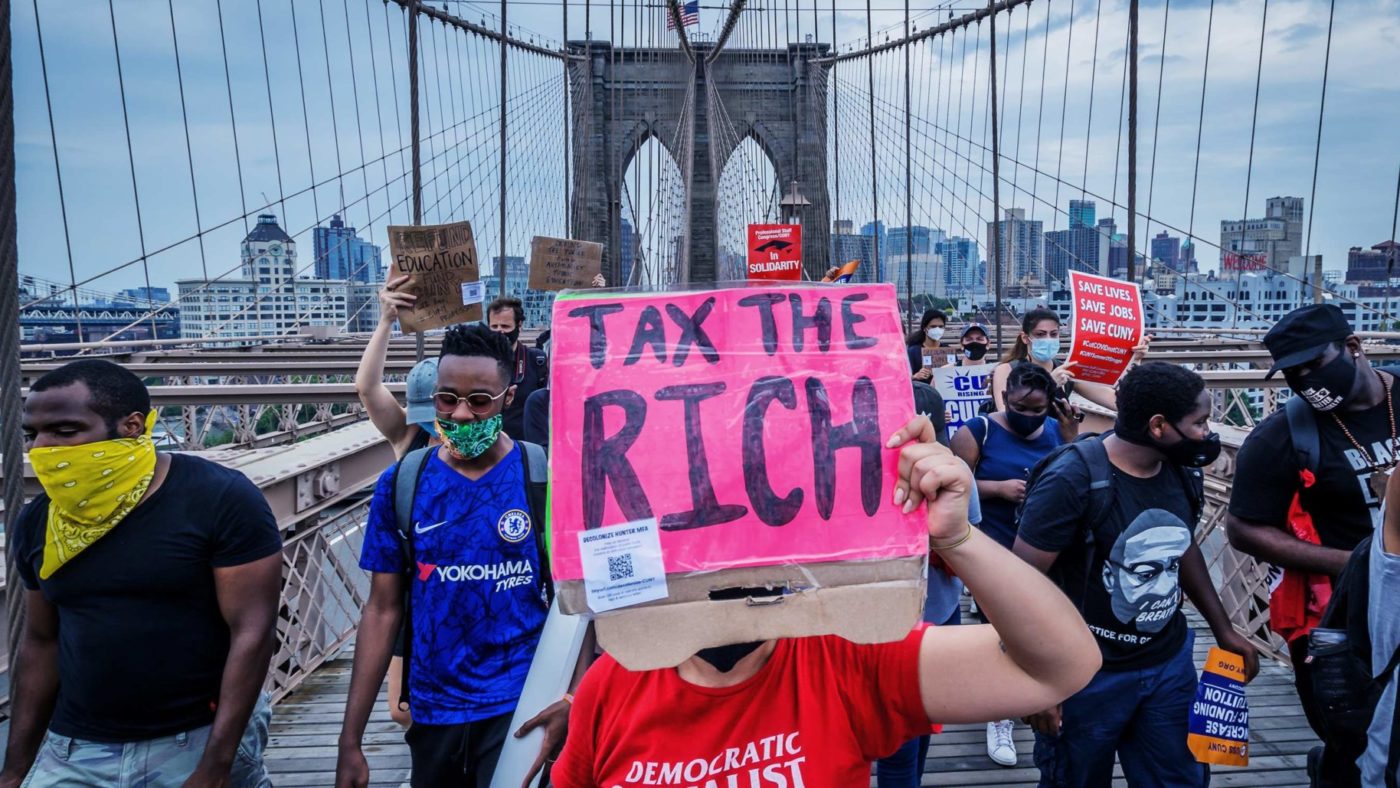Beware confirmation bias – the insistence that this event means that grand plan must be enacted. It’s been a particularly prevalent phenomenon since the start of this pandemic, with Covid-19 being invoked by all and sundry to justify their pet project of choice.
That’s worth bearing in mind when considering these current ideas for a wealth tax. For many of those advocating such a policy, coronavirus is not a reason to enact it, but an excuse for something they wanted all along. The sun coming up in the morning would be good enough confirmation for those people.
When even the Times is asking whether this is an idea whose time has come – with exactly the Covid justification – it’s necessary to kick back.
The standard economic argument against wealth taxes is not just ‘no’ but ‘hell no’. The reason being that we like investment, as it’s what makes our future lives that much richer. We also know that taxing something means getting less of it. So, taxing wealth – the result of investment – is to make the future poorer. That’s how the optimal taxation theory result is reached – there should be no taxes upon either capital or the income from capital. It was actually the leftwing US economist Joe Stiglitz who showed, back in 1980, that the correct tax level could be negative.
Of course, large numbers of people don’t like this result and very much like the idea of ‘soaking the rich. So, they look for reasons to bypass the obvious objections.
The French ‘rock star’ economist Thomas Piketty, for example, states that the wealth to GDP ratio has risen in recent decades, therefore wealth must be taxed. He rather ignores, however, that lifespans have increased (substantially so), so people quite rationally save more in their pensions for a longer retirement – something that rather neatly covers the increase in the ratio he complains about.
Another standard argument is that inequality has increased, so it’s time to tax wealth. The problem here is that no account is ever taken – this is common right across wealth distribution studies – of what is already done to reduce the inequality. State pensions, rent subsidies, free education and healthcare, these are all wealth in any rational description, yet no adjustment is made for them.
All of the same is true of coronavirus as a justification for wealth taxation – it’s an attempt at justify something that just should not be done.
There is also the rather important point that a wealth tax won’t raise much money. As the ONS points out, actual financial wealth – the shareholdings of the plutocrats – is trivial by comparison with housing equity and pensions, and the latter two simply aren’t going to get taxed.
As to what should be done instead. My own view is that there’s a limited amount that can be squeezed out of the population in tax and that we’re about there, if not slightly above it. If more public money needs to be spent in one area then that should mean cutting spending elsewhere. This is not popular and most certainly not with those who would spend the money, the politicians, which is why so few are recommending it.
What, then, is to be done? One suggestion with some merit is that higher bands of council tax would capture, if not wealth, then housing consumption. But land value taxation should be brought in anyway – it would solve the business rates problem at a stroke – which makes changing the details of council tax moot.
The actual answer is to follow those precepts of optimal taxation theory and have a progressive consumption tax. Without going into too much detail, that means not taxing wealth or savings at all. All income that is saved is tax-free, all income from having saved that is saved again equally so. But any money that is, from whatever source including income from wealth, spent upon consumption is taxed at whatever the income tax rate is – presumably in progressive bands as the number rises.
Effectively, all savings and investments would be in a giant ISA and tax applied when any money is taken out. This would achieve the larger economic goal, of increasing the future wealth of the nation, while also being able to squeeze more from the idle rich spraying the money around from their genetic good fortune.
That this is logical, doable and sensible is presumably why it isn’t being done. For what use jockeying for position in politics if a problem is already solved?
Click here to subscribe to our daily briefing – the best pieces from CapX and across the web.
CapX depends on the generosity of its readers. If you value what we do, please consider making a donation.


